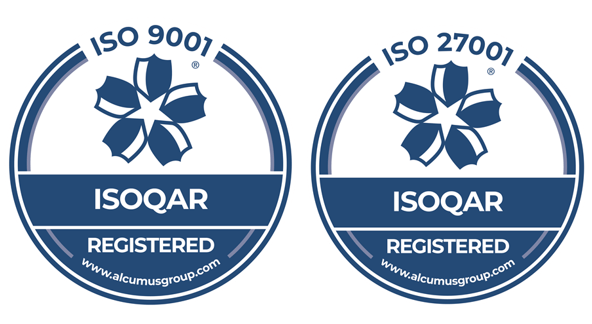WordPress is the most popular Content Management System (CMS) in the world, offering exceptional levels of usability and flexibility that enable organisations of all shapes and sizes to deliver engaging high-performance digital experiences.

In recent years WordPress has seen a significant growth in popularity among enterprise organisations, having proven its capabilities at scale. Indeed, it is the most popular solution across primary and secondary CMS markets in the space (source: WP Engine), and powers high-traffic and high-transaction platforms for leading brands including Microsoft, Rolling Stone, the New York Post, Slack and our own client, RS Components.
If you’re looking to make WordPress part of your enterprise tech stack, it’s vital to consider how your solution will be hosted, as the decision you make here can have a significant impact on your ability to serve your audience both now and in future. While there are numerous hosting options available, in this post I’ll be looking specifically at managed hosting services, as these are typically best suited to the needs of the enterprise. (If you want to learn more about self-hosted WordPress solutions, you can read this blog post comparing different types of WordPress hosting.)
You’ll learn exactly what managed WordPress hosting is, and the benefits it can offer for your enterprise WordPress CMS platform. I’ll also be covering some of the key factors to consider when planning your managed hosting solution, to help ensure it delivers against your requirements and goals.
What does managed WordPress hosting mean?
Managed WordPress hosting services take the responsibility of managing your WordPress installation away from your internal teams; instead, these are covered by a third-party provider. Your hosting partner will take care of any updates and backups that are required to keep your platform running smoothly, and will also monitor the security, speed and availability of your installation, taking steps or suggesting actions as needed in response to issues and opportunities. All hardware related to the hosting of your solution, including servers, firewalls, racks and datacentres, is also the responsibility of the managed WordPress hosting partner.

By reducing administrative burden on your teams and giving you confidence in the performance of your solution, managed hosting frees your team up to work on other areas of your digital and technical strategy, increasing the value that can be delivered back into the business and to your users. Your managed WordPress hosting partner will also ensure your installation scales as you need it to to support long-term growth, and maintain operations during spikes in activity (for example in response to product launches, marketing campaigns or industry events and announcements).
What is the difference between hosting and managed services?
While managed hosting and managed services can be similar in some respects, there are key differences to note.
Managed hosting refers to how your website is served to your audience; this may be via physical servers that you manage in-house, through virtual servers hosted in the cloud, or a hybrid approach that combines these two approaches. A third-party managed hosting provider will take care of the management of these servers, and the delivery of your site to users (covering elements such as security, speed and availability, as mentioned above).
Managed services may encompass managed hosting, but will also likely include a much wider range of systems and responsibilities, and your Managed Service Provider (MSP) will work with you to optimise your technology strategy in ways that drive progress against core business goals, or help realise operational efficiencies. Your MSP will also typically monitor, maintain and optimise your overarching technology ecosystem, including your hosting servers, Content Delivery Network (CDN) and infrastructure, as well as the coordination of any other technology providers you may be working with.

They’re also more likely to be involved with the full end-to-end lifecycle of your technology process, which may include support for discovery/requirements gathering and development activities, strategic consultancy services, and ongoing support in the form of search engine optimisation, content creation and other key tasks.
Is managed WordPress hosting worth its cost?
Managed WordPress hosting delivers many benefits, most notably the confidence it provides in the reliability and performance of your site, while taking pressure away from your internal teams. By working with an experienced provider you’ll also benefit from their technical expertise, particularly if you partner with a managed hosting provider that specialises in WordPress. If your hosting platform is optimised specifically for WordPress, too, you’ll benefit from blazing-fast performance and the highest levels of security.
Additionally, the majority of managed WordPress hosting providers offer access to multiple staging environments that allow you to carry out development, testing and UAT before releasing to live, alongside built-in tools such as version control and one-click deployments, and regularly-tested backup and restore processes. The support offered by managed hosting providers is another source of real value, as your partner will ensure that any issues are resolved quickly, and should take a proactive approach to implementing updates and patches in order to maintain the security and stability of your platform.

Of course, the support and maintenance provided by managed WordPress hosting partners means that these options typically require more budget than self-hosted solutions, so it’s important that you conduct a cost-benefit analysis as part of your planning process to understand if it’s the right option for you (this blog post covers some key questions to ask when conducting your analysis, if you’d like to learn more).
While there are a range of factors that will influence your decision, at a high level managed hosting is recommended for enterprise WordPress sites that handle high levels of traffic and transactions, or need to serve large volumes of content. Here, self-hosting can introduce unnecessary complexity and subsequently steep overheads for your internal team, which an experienced managed WordPress hosting partner will likely be better placed to handle.
Managed hosting is also worth considering for business-critical sites that have a direct impact on your bottom line, where safeguarding continuity of operations is of critical importance. You should think about the cost of failure for these services – for example, how would one hour of outage on your ecommerce platform affect your revenue and profit? Capturing this information will help you understand the measurable value that you could gain from investing in a managed hosting solution, and make a stronger business case to senior stakeholders in your organisation.
Choosing a managed WordPress hosting provider
Once you’ve made a decision about how your enterprise WordPress platform will be hosted, you’ll need to look for a partner to support you in your efforts. The right solution for you will of course depend on your specific requirements, so it’s vital that you define the scope of your project before you select a hosting platform or partner. This includes:
- Using analytical data to understand the traffic levels you’ll need to support, and identify any seasonal trends or other potential spikes in activity you’ll need to accommodate.
- Identifying which non-functional requirements matter most to your platform; for example, if you’re delivering financial services security will be a priority, while content-driven sites (such as those in the publishing sector) may require a greater focus on scalability.
- Understanding which regions you’ll be targeting and how this compares to where potential managed hosting partners host their servers and content delivery networks, as this will heavily impact speed and response times. This is particularly important if you have a global digital offering, as you’ll need to be confident that your site can be served quickly across multiple regions.
- Looking at your future strategy and growth plans over both the short- and long-term, to understand how your requirements may change over time and how the managed hosting partner you choose may support you with this.
Once your requirements have been clearly defined you can then undertake an options analysis exercise to help you identify the managed hosting service that is best suited to your needs. There are many providers out there offering managed WordPress hosting services, with a variety of packages on offer to suit different budgets, performance and load requirements, support level agreements and more. You’ll also find that some providers cover a range of technologies while others focus solely on WordPress installations, so it’s important to assess the technical expertise and domain knowledge of any vendor you consider.
The most popular solution in the managed WordPress hosting space is WP Engine. (Disclaimer: we are a Strategic Partner agency for WP Engine, as well as a Silver agency development partner to WordPress VIP, another managed hosting platform that’s run by the team behind WordPress.com.)

Powering 1.5 million digital experiences for 175,000 customers in 150 countries, it’s reported that 5% of the online world visits at least one experience on WP Engine each day, including those from Microsoft, Network Rail, Thomson Reuters and Nike. WP Engine’s enterprise credentials also include scaling the Country Music Awards site to handle over 70 million hits across a 24 hour period covering the night of the ceremony, while cutting hosting costs in half.
Is WP Engine shared hosting?
WP Engine offers a range of managed hosting plans to suit the needs of different organisations, meaning you only need focus on choosing the right package for you, rather than working out whether you require a shared or dedicated hosting option.
WP Engine’s plans are tailored according to a variety of factors including the number of sites you need to host and the traffic levels you need to support, as well as the levels of storage you require. They also offer custom plans that support the highest levels of demand and provide an enhanced support offering, to serve the specific needs of the enterprise.
A partner to power you forward
With more and more enterprise businesses discovering its power, WordPress is clearly here to stay in this space. And at Box UK we can help you stay ahead of the curve, applying our experience designing, delivering and maintaining complex, large-scale WordPress platforms that help global organisations unlock the benefits of this flexible and scalable framework. To learn more, read our guide on Replatforming to WordPress, see how we’ve helped other organisations, and get in touch to find out what we can do for you.

